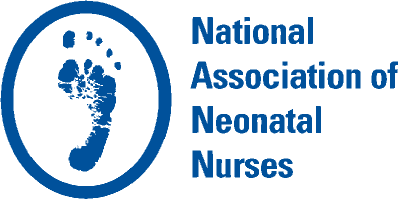Mental Health for NICU Families–A Call to Care and to be Aware
By Jan Riley, BSN, RN, CCRN
NANN Footprints: December 2023
I have a mental illness–in my family. This was how actress Glenn Close started a public service commercial a while back. That pause, before saying ‘in my family’, makes you think she’s talking about herself, questioning your assumptions. Glenn has been an advocate for mental illness, and is a co-founder of a foundation called Bring Change to Mind.1 This organization is important in raising awareness and promoting dialogue about mental health issues.
Why should we care about mental health? Mental health affects much of our society, but one population highly affected is our postpartum mothers. If you don’t have a personal connection with a mental health issue, all you need to do is turn on the news to see its widespread impact on family units.2 examples in the state of Massachusetts highlight this. Ariana Sutton, a dancer and mother of 3, who’s battle with postpartum depression tragically ended with her taking her own life, just 9 days after giving birth to preemie twins.2 A labor and delivery nurse, Lindsay Clancy, suffered from postpartum psychosis. This resulted in the tragic deaths of her children and an attempt on her own life.3
Approximately 1 in 10 babies go to the NICU.4 When my families come in for the first time to parent, I can see the look of shock on their faces. I feel like I’m the tour guide for a trip they never wanted to take. Instead of an island beach vacation for which they planned, they find themselves stranded in a snowy highway pileup.
NICU blues is a name NICU Psychologist Beth Buckingham has given to a condition unique to parents in the NICU setting.5 Beth says the intersection of NICU trauma, baby blues, postpartum mood and anxiety disorders, and NICU grief defines NICU blues. The “out of control and helplessness emotions” parents feel can be devastating. Guilt and shame come into play, feeling like their bodies have failed and now a nurse is taking care of the baby. We need to be aware because this is a common issue and also because it’s possible to intervene.
In the book, “Healing-Our Path from Mental Illness to Mental Health”, Thomas Insel refers to the 3 “Ps”--people, place, and purpose. He says that recovery is not just relief of symptoms, it’s also finding connection, sanctuary, and meaning not defined or delimited by mental illness.6 With 36 years as a NICU staff nurse, I have seen the importance of connection through my own experience and with the guidance of my mentor, Rhonda Lelak-Johnson who was a NICU nurse for 40 years. In her current role doing after-hours phone triage, Rhonda says that sometimes these families need someone to talk to. The calls will be about much more than the initial issue. Rhonda has seen that the foundation of all health starts with the basics, such as transportation, housing, and food. In her opinion, the NICU experience is one of the most under-discussed topics.
Some of her clients grew up hearing “never talk about what goes on in this house” because of fear of police or agency involvement. The only emotion allowed to be expressed was anger. For these clients, there is no place for the feelings to go, especially if they haven’t learned to trust their own instincts and judgment. She says “after the baby’s feet clear the vagina, a parent is expected to just deal and know what to do.” She doles out reassurance when mothers ask, “am I doing the right thing?” One of her recommendations is an open-ended forum for new parents to talk to others experiencing similar challenges.
From my experience, the lens from which I view families and their challenges has changed. Now that my 3 children are adults I think, “what if this parent and baby were my child and grandchild? What would I want for them.” This has led me to prioritize mental health for the entire family unit.
So what can you do to help the mental health of our NICU families? We need to push for mental health consults for all NICU families and be on alert for NICU blues. We need to make parents feel connected and seen. We need to help parents find their “go-to” person when needing help, perhaps a trusted friend or member of the community. We can prepare ourselves for social situations that need our compassion. We need to think of people, place, and purpose within our own circles and how to pull others in and create an open, safe environment for those who are battling mental illness.
References:
1. bringchange2mind.org
2. https://www.today.com/parents/famly/mom-dies-suicide-twins-rc na88579
3. https://www.masslive.com/news/2023/10/friends-describe-lindsa y-clancy-days-before-children-were-murdered.html
4. Harrison W, Goodman D. Epidemiologic Trends in Neonatal Intensive Care, 2007-2012. JAMA Pediatr. Sep 2015;169(9):855-62.
doi:10.1001/jamapediatrics.2015.1305
5. Buckingham, Beth, LeMasters, Grace, “NICU Blues”: A Novel Term for Common Parental Experiences. Neonatology Today. Oct 2022, pg 3.
6. Insel, Thomas, Healing-Our Path From Mental Illness to Mental Health, 2022, pg 160.
